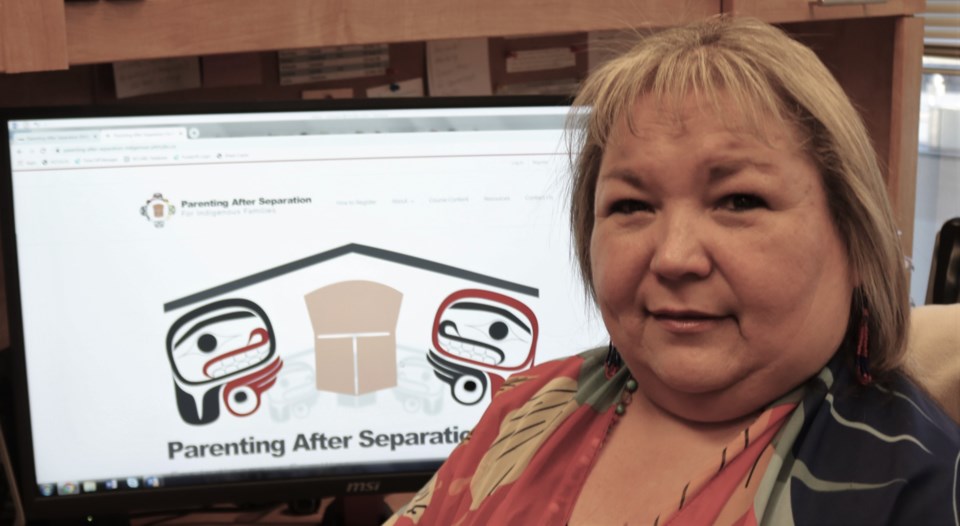Indigenous parents who are going through separation or divorce can now access a free online course to help them make decisions in the best interests of their children.
Parenting After Separation for Indigenous Families offers information about how Indigenous parents can honour their children while working through challenges like determining parenting time and child support.
It also explains how intergenerational trauma from colonization can affect parents' experiences of separation and provides strategies they can use to manage stress during this difficult period.
Christina Draegen, the Prince George-based northern regional manager of the B.C. Native Courtworker and Counselling Association, was a member of an advisory committee that played a key role in putting the course together over the past year and a half.
It was a matter of taking the online course already in place for the general population and looking at it through an Indigenous lens.
"Our experience with the traditional Parenting After Separation online course was that our Indigenous people were not being successful at connecting with it or even completing it with long-term benefits," Draegen said.
Through a choice of video, audio or text, the course takes three to four hours to complete but is divided into eight modules so it can be done at the parent's own pace.
"There are elders and other champions that provide their wisdom, advice and personal experiences throughout the course," Draegen said. "All of the tools inside this course are designed with the respect and mindfulness of an Indigenous compass - all the handouts, all the pictures, the completion certificate, everything."
When it comes to the value of connecting with one's culture, she speaks from experience. Draegen's roots are Algonquin and Ojibway in Ontario but she was adopted and raised in Prince George by a "beautiful Cree family and they raised me to be proud to be indigenous."
When her relationship with her now ex-husband didn't work out, Draegen became a single parent raising two boys. But that didn't stop her from making sure they took on their father's Carrier identity.
"I made the decision for them to know their grandparents and their family on their dad's side and brought them to their community to practice their culture," Draegen said.
Every summer, her boys would join their relatives harvesting salmon and just spending time with their grandparents, aunts, uncles and cousins.
"They learned how to repair net and set net and how to take care of salmon and how to take care of a smokehouse and how to pick berries and how to respect the land and how to respect animals - the cultural values that we want to restore and maintain with our young people," Draegen said.
"And I'm so glad that I did that because now my sons are in their 30s - they're young indigenous men who are confident and they're solid in their identity. They know who they are and they have a solid foundation to embrace society in a good way."
To review the materials or take the course, go to www.gov.bc.ca/ParentingAfterSeparation.



